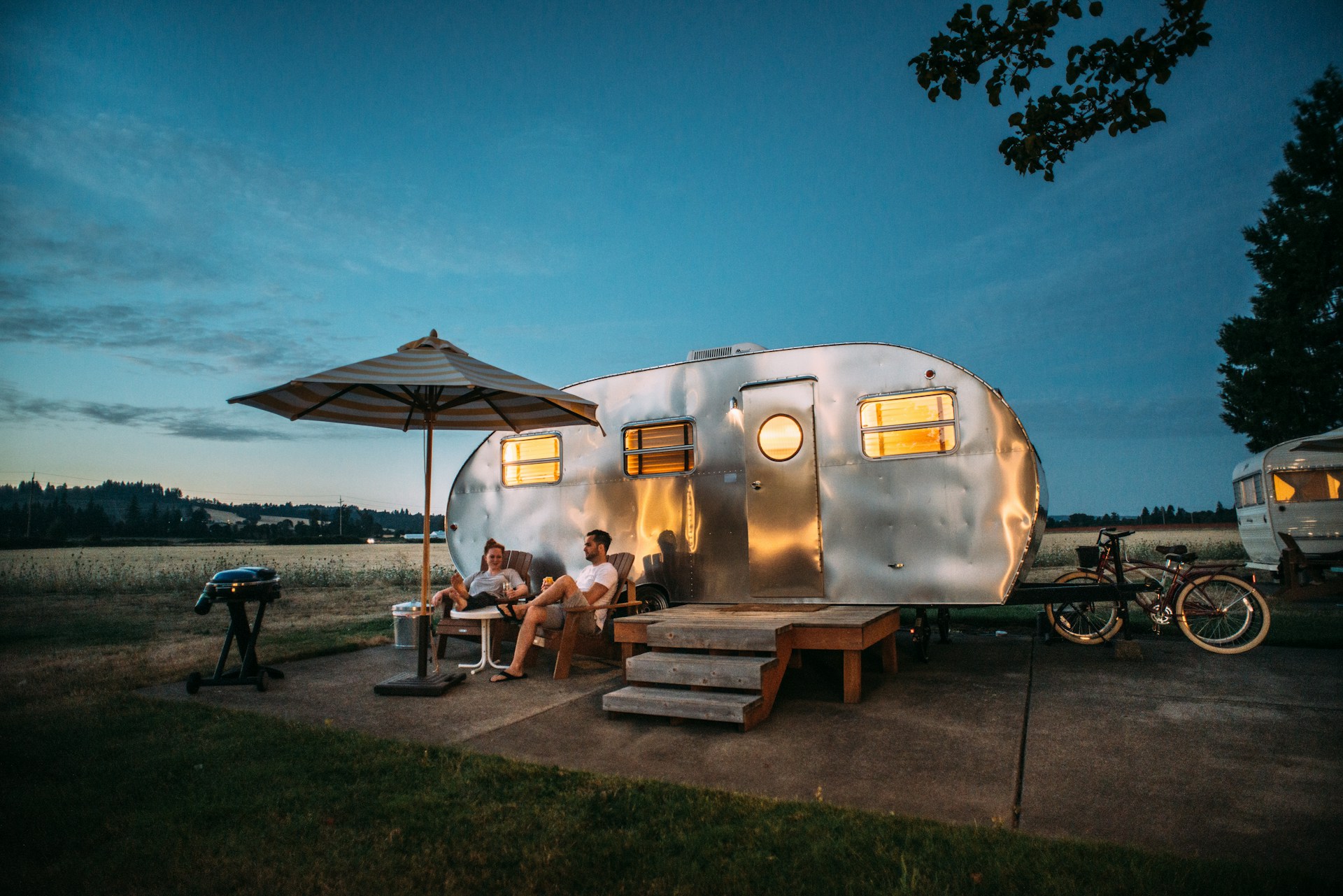What are the rules and etiquette for sound levels at UK campsites?

Camping offers an opportunity to escape the daily grind, connect with nature, and experience the wild's tranquillity. However, with the increased popularity of camping, especially in the UK, comes the necessity to establish rules and etiquette, ensuring that everyone enjoys their time in the great outdoors. One aspect that often comes into focus is the sound level at campsites.
In this article, we will delve into the rules and etiquette for maintaining acceptable sound levels at UK campsites. We'll discuss various aspects, including the role of campsite managers, campers, and how to keep your camping experience enjoyable and respectful of others.
Avez-vous vu cela : What privacy measures can you take when showering at communal UK campsite facilities?
The Role of Campsite Management in Controlling Noise levels
Every campsite, be it a private site, club, or public park, has a responsibility to ensure their premises provide a relaxing and enjoyable environment for campers. The management usually has policies in place to maintain the harmony of the camp area, and noise control is often a significant part of these rules.
Many campsites in the UK, for instance, have 'quiet times' typically between 10 pm and 7 am. During this time, campers are expected to keep noise levels to a minimum to not disturb others' sleep. Some campsites will even have wardens patrolling the area during these hours to ensure rules are adhered to.
Sujet a lire : Can you camp on private land in the UK with the owner's permission?
Moreover, it's not uncommon for campsites to enforce site rules about the use of radios, televisions, and other audio devices. For example, some campsites may ask that such devices aren't used outside your tent or motorhome, or that they are used with headphones to prevent noise pollution.
The Camper's Responsibility in Maintaining Quieter Campsites
While the campsite management will set the rules, it's ultimately the responsibility of the camper to adhere to them. Remember, you're sharing the campsite with many other people, and your actions have an impact on their experience.
Firstly, consider your pitch. If you're planning on staying up late or are camping with a group, aim to set up camp in an area away from families with young children or people who prefer an early night.
Secondly, bear in mind what activities you're planning. If they're likely to be noisy, such as games or music, make sure you're respecting the campsite's quiet times.
One of the best parts of camping is the chance to socialise. However, remember that sound carries, especially at night. So, keep your voice down, especially during quiet hours. If you're using a radio or other device, use headphones or keep the volume low enough so as not to disturb your neighbours.
Campsite Noise and the Law
The rules and etiquette around campsite noise in the UK aren't just about being considerate to your fellow campers. They also have a legal aspect. Under the Control of Pollution Act 1974, excessive noise can be considered a statutory nuisance, and people can take legal action if it's causing a disturbance.
While this might seem extreme, it's worth keeping in mind. If a campsite receives multiple noise complaints, they might be taken to court, and the local council could impose restrictions or even shut the site down.
So, when you're choosing a campsite, it's worth checking their rules around noise and ensuring you're comfortable with them. If in doubt, ask the site managers or look for reviews from previous campers.
Best Practices for Keeping Noise Down at Campsites
In addition to following the campsite's noise rules, there are some best practices that you can adopt to be a considerate camper.
When setting up camp, try to do so during daylight hours. Not only is this practical – it's easier to see what you're doing – but it's also considerate. Setting up camp can be noisy, especially if you're arriving in a motorhome. Doing this at night could disturb people who are trying to sleep.
Consider the type of camping gear you use. Some types of tents, for instance, have zips that can be very noisy in the quiet of the night. Look for gear that is designed to be quiet, or be mindful of the noise you're making when using it.
Finally, remember that while you're there to enjoy yourself, so are the other people on the site. Be respectful of their space and their right to enjoy their time camping, just as you would want them to be of yours. This includes respecting the noise rules and etiquette, even if you don't necessarily agree with them.
By respecting these rules and etiquette, not only will you ensure that you're not causing a nuisance to others, but you'll also contribute to a positive and enjoyable camping atmosphere. Ultimately, camping is about enjoying the great outdoors and respecting the wild environment in which we're staying – and that includes the peace and quiet.
Respect for Wild Camping and Access Rights
Wild camping, which refers to camping outside of designated campsites, often in remote locations like national parks, is an enticing option for many campers in the UK. While it offers a chance to enjoy the wilderness without the constraints of a formal campsite, it comes with its own set of rules and responsibilities, particularly around noise.
Access rights to land for wild camping vary across the UK, with Scotland being more permissive than England and Wales. Even if wild camping is permitted, you are expected to follow the “leave no trace” principle. This principle, which includes keeping noise to a minimum, ensures that the beauty and tranquillity of the wild remain intact for others to enjoy.
When wild camping, it's essential to be aware of your surroundings. The peace and quiet that come with being in the wild can amplify noise, meaning that even a whispered conversation or the zip of a sleeping bag can carry over a large distance. When setting up camp, keep this in mind and choose your spot carefully. Try to set up far away from other campers and make an effort to conduct your activities quietly.
Remember, the beauty of wild camping lies in the chance to immerse oneself entirely in nature. Respecting the quiet and peace of the wild is part of this experience. It's also worth noting that, while wild camping, you don't have the same access to site staff as you would at a traditional campsite, so it's crucial to keep noise levels in check to avoid disturbing fellow campers or local wildlife.
Camping Etiquette and Your Camping Trip
Whether you're a seasoned camper or venturing out on your first camping trip, it's essential to remember that camping etiquette goes a long way in ensuring a positive experience for everyone. This includes being mindful of your noise levels, regardless of whether you're at a formal campsite or practicing wild camping.
In addition to the campsite rules, there are a few unwritten rules every camper should adhere to. If you're using a sleeping mat or any equipment that makes noise, be aware of the time and try to either use them during the day or as quietly as possible. Similarly, if you have to leave your site early in the morning or arrive late at night, try to be as quiet as possible to avoid disturbing other campers.
Everyone wants to have a memorable camping trip, and part of that involves being respectful of your fellow campers. Whether you're camping in the busy summer months or in the off-peak season, sound etiquette is vital. After all, we all share the great outdoors, and it's up to each of us to maintain its tranquillity, respecting not only our fellow campers but also the wild environment that we are privileged to enjoy. This includes keeping noise to a minimum, adhering to both the access code and any campsite rules, and being mindful of the impact of our activities on others and the environment.
By practising these basic principles, you contribute to making camping a more enjoyable and peaceful activity for everyone. This way, we can all continue to enjoy the beauty of the UK's national parks and campsites for many years to come.
